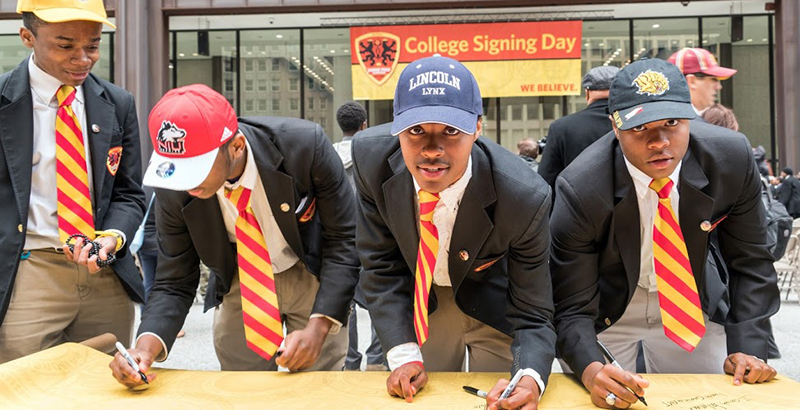King: College Attainment Is Hard — Especially for the Most Disadvantaged — but Not Pursuing a Degree Is Far Worse

It’s the time of year when, for many high school seniors, college becomes a major focus. They take (or retake) tests, redouble their commitment to extracurriculars, solicit recommendations, and conduct countless hours of research as they complete college applications.
Also around this time every year, there are mutterings from various corners about college not being for everyone. The argument goes that college isn’t worth it and that we are somehow damaging students by pushing them in the direction of a degree. Then, the examples of fabulously successful individuals like Mark Zuckerberg, who didn’t finish college, are cited. One of my grandmothers didn’t finish college, yet she managed to start and run a profitable community-based business for 40 years.
So, yes, it’s possible to be successful without college, but these examples are as far from the norm as they are from each other; they are exceptions by which we should create no rule.
Having a college degree has positive tangible economic impacts on individuals as well as our country. Georgetown University’s Center on Education and the Workforce reports that a person with a bachelor’s degree on average will make over $1 million more in their lifetime than a person without one. More macroeconomic impact data comes from the Washington Center for Equitable Growth, which reported that closing the educational achievement gap would increase tax revenues by $5.3 trillion over the next 30 years. For the poorest students, according to a recent study from the Upjohn Institute for Employment Research, young people from low-income backgrounds who complete college will earn 71 percent more than their friends who get only a high school diploma.
And sure, money isn’t everything. But higher incomes and less financial burden on society aren’t the only benefits of a college degree. People with college degrees are more likely to be employed, vote, volunteer, and stay out of jail. Due mostly to their higher incomes, better access to health care, greater social connections, and improved psychological well-being, people with college degrees even live longer. A Public Library of Science (PLOS) journal study found that in 2010, “554,525 deaths could be attributed to individuals having anything less than a baccalaureate degree.” That same year, according to the Centers for Disease Control, only heart disease (597,689) and cancer (574,743) caused more deaths.
It’s especially important that we encourage segments of our population who are underrepresented on university campuses to go to college. According to the University of Chicago Consortium on School Research, only 8 percent of ninth-grade black males will earn a bachelor’s degree by the time they are 25 (compared with 34 percent of white males). The National Student Clearinghouse released a report finding that the six-year college completion rate for black men is half that of the overall population.
Of course, telling kids to go to college isn’t enough. We have to also provide a road map and help them navigate the path to and through. Government must implement policies that incentivize college attendance and completion. High schools have to engage in more rigorous and targeted approaches to building college-going cultures and provide wraparound ninth-through-12th-grade college counseling services.
As for colleges, providing opportunities for low-income and underrepresented students to gain admission to college, keeping tuition costs low, and promoting faster, more efficient paths to graduation are the right steps. Colleges also must commit to understanding the experiences and needs of their students and provide social and emotional support to them as they traverse a road through college often filled with potholes.
The facts show that college attainment — a mountain particularly steep for the most disadvantaged to climb — will only cast a shadow over grimmer, shorter, and more painful lives for people who don’t pursue degrees. Sure college is expensive, but a generation of people not having college degrees would be even more costly for us all.
So let’s encourage young people on the path that is most likely to ensure their prosperity: college. If they don’t end up with a degree, that’s OK. What’s not OK is anyone not helping them to succeed or, worse, telling them not to even try.
Tim King teaches at Northwestern University and is the founder and CEO of Urban Prep Academies, a nonprofit operating a network of all-male charter public schools in Chicago. One hundred percent of Urban Prep graduates, all African-American males and mostly from low-income families, have been admitted to college.
Get stories like these delivered straight to your inbox. Sign up for The 74 Newsletter

;)